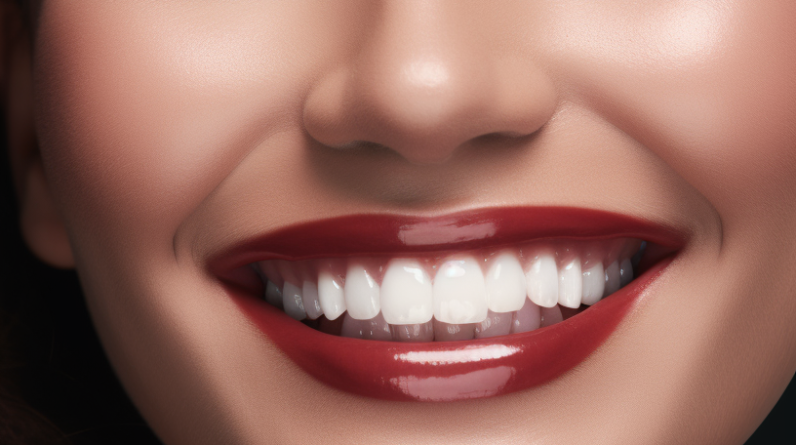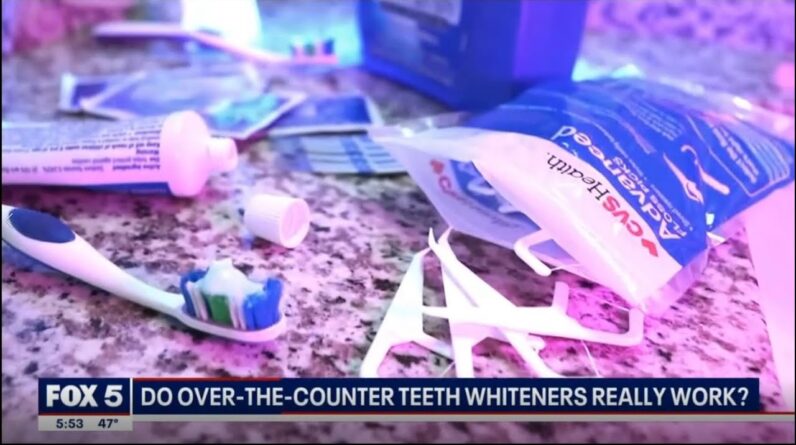
Are you looking for ways to get a brighter and whiter smile? Teeth whitening is a popular cosmetic procedure that can help you achieve that. However, visiting a dentist for teeth whitening can be expensive and time-consuming. The good news is that there are several teeth whitening methods that you can try at home. In this article, we will discuss everything you need to know about teeth whitening at home.
Introduction
A smile is the first thing that people notice about you. Having yellow or stained teeth can make you self-conscious and affect your confidence. Teeth whitening is a cosmetic procedure that can help you get rid of these stains and achieve a brighter smile. While visiting a dentist for teeth whitening is the most popular method, it can be expensive and time-consuming. However, there are several affordable and effective ways to whiten your teeth at home.
In this article, we will discuss various teeth whitening methods, their pros and cons, and answer some frequently asked questions to help you make an informed decision about teeth whitening at home.
Teeth Whitening at Home: Methods and Techniques
There are several methods and techniques that you can try to whiten your teeth at home. Let’s take a look at some of the most popular ones:
Whitening Toothpaste
Whitening toothpaste is one of the most affordable and accessible ways to whiten your teeth at home. These toothpaste contain mild abrasives and polishing agents that help remove surface stains on your teeth. However, they may not be as effective as other teeth whitening methods and may take longer to show results.
Whitening Strips
Whitening strips are thin, flexible strips that are coated with a peroxide-based gel. You place these strips on your teeth and leave them for a specific time, usually around 30 minutes. They are easy to use and provide noticeable results in a few days.
Whitening Trays
Whitening trays are custom-made trays that you fill with a peroxide-based gel and wear for a specific time, usually 30 minutes to an hour. They are more effective than whitening toothpaste and strips but may be more expensive.
Whitening Gels
Whitening gels are peroxide-based gels that you apply directly to your teeth with a brush or a pen-like applicator. They are easy to use and provide fast results. However, they can be messy and may cause tooth sensitivity.
Activated Charcoal
Activated charcoal is a natural substance that is known for its ability to absorb toxins and impurities. It is also used in some teeth whitening products. You can apply activated charcoal to your teeth by mixing it with water and brushing your teeth with the paste. It can remove surface stains but may not be as effective as other methods.
Pros and Cons of Teeth Whitening at Home
Teeth whitening at home has its own set of advantages and disadvantages. Let’s take a look at them:
Pros
- Affordable: Teeth whitening at home is usually more affordable than professional teeth whitening.
- Convenient: You can whiten your teeth at home at your own convenience.
- Multiple Options: There are several teeth whitening methods and techniques to choose from.
- Control: You have more control over the process and can stop or slow down if you experience tooth sensitivity or discomfort.
Cons
- Effectiveness: Teeth whitening at home may not be as effective as professional applied teeth whitening, and may take longer to show results.
- Risk of Sensitivity: Some teeth whitening methods can cause tooth sensitivity and discomfort.
- Potential Risks: Improper use of teeth whitening products can damage your teeth and gums.
- Not Suitable for All: Some people may not be suitable candidates for teeth whitening at home, such as those with sensitive teeth or certain dental conditions.
Teeth Whitening at Home: FAQs
- Is teeth whitening at home safe?
Yes, teeth whitening at home is generally safe if you follow the instructions and use the products properly. However, improper use of teeth whitening products can damage your teeth and gums. - How long does it take to see results?
The time it takes to see results may vary depending on the method and technique you choose. Some methods, such as whitening toothpaste, may take longer to show results than others, such as whitening gels or strips. - How long do the results last?
The longevity of the results may depend on various factors such as the method used, your lifestyle habits, and oral hygiene. Whitening toothpaste may provide short-term results, while other methods may provide longer-lasting results. - Can teeth whitening cause sensitivity?
Yes, some teeth whitening methods can cause tooth sensitivity and discomfort. If you experience sensitivity, you can try reducing the frequency of use or switch to a less concentrated product. - Is teeth whitening at home suitable for everyone?
No, teeth whitening at home may not be suitable for everyone. People with sensitive teeth or certain dental conditions may not be suitable candidates for teeth whitening at home. - Can teeth whitening damage my teeth?
Improper use of teeth whitening products can damage your teeth and gums. It is important to follow the instructions and use the products as directed.
Conclusion
Teeth whitening at home can be an affordable and convenient way to achieve a brighter smile. However, it is important to choose the right method and use the products properly to avoid any potential risks or damage to your teeth and gums. If you have any concerns or questions, it is best to consult your dentist before trying any teeth whitening method at home.
We hope this guide has provided you with valuable information about teeth whitening at home. Remember to prioritize your oral health and hygiene to maintain a healthy and bright smile.







